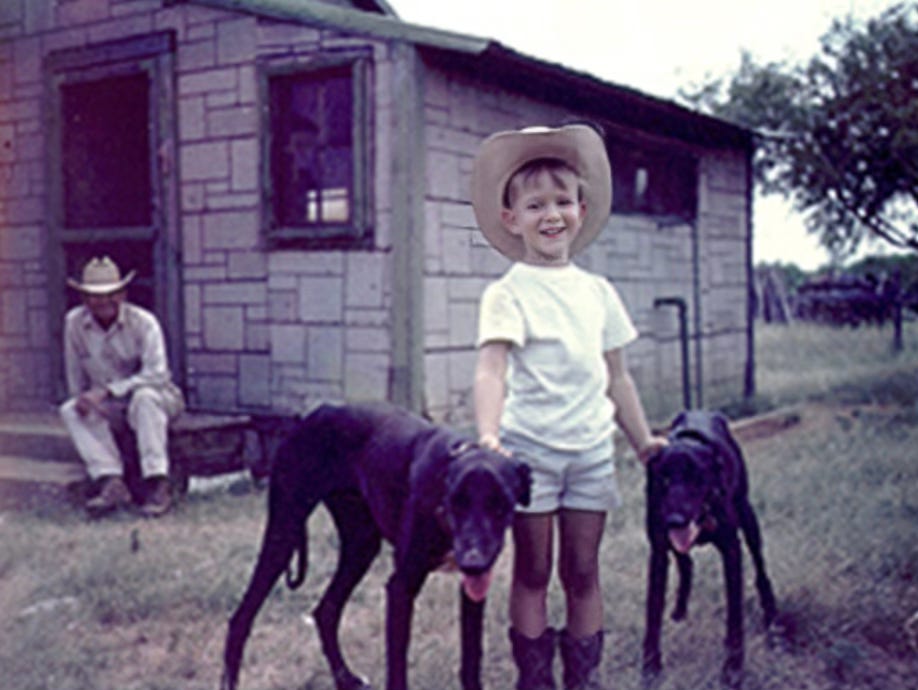“Where are you heading?”
“I’m going to take a walk with the boss, Daniel,” he replied, a hint of hesitation in his voice.
“What about?”
Light gleamed off his smooth head, looking out the window at the bustling city below. “It’s that online book-selling idea I’ve been tinkering with. I can’t shake it off.”
Daniel leaned back, raising an eyebrow. “It’s a good idea. But it’s a leap. You’re a VP now, at the top of your game here.”
He nodded, his mind racing with possibilities and uncertainties. “I know, but it’s this feeling I can’t ignore. Like I’m standing at the edge of something.”
Daniel's smile faded slightly as he added, "But Jeff, think about it. You've got a career here, a very good salary.” he said with a smile. “You're married now – isn't this a huge risk to take for something completely untested?"
Jeff's gaze faltered momentarily. "I know, Daniel. Everything tells me to stay put, but it's this... this gut feeling.”
“Okay, okay. Enjoy your walk, and don't forget to send over your analysis on those tech stocks when you get back.”
Childhood experiments
Exactly, 30 years prior, this man was born to a mother, Jacklyin, who was 17 at the time. Only shortly after, she divorced his biological dad, Ted Jorgensen. 4 years later, she remarried a Cuban immigrant, who took him in and settled in Texas. Aged 4 to 16, he spent summers with his grandfather on his ranch. “I’ve fixed windmills and laid fences and pipelines… vaccinated the animals” in a rare appearance on a Lex Fridman podcast. He admires his grandfather’s resourcefulness; “he didn’t pick up the phone and call somebody”. He made his own veterinary tools and even learned to suture cattle. He told about a time his grandfather even bought a B6 bulldozer for $5,000. He chose a completely broken-down one, knowing a new would cost $100,000. They spent an entire summer fixing it. Jeff admits this experience honed his problem-solving skills from a very young age. This perhaps carved this habit in his psyche. But, would he take the leap?
Regret Minimisation Framework
After a 2-hour walk around Central Park. Daniel, his boss, admitted that “it was a great idea but it would be an even better one for someone who didn’t have such a good job”.
But it didn’t stop him. He knew the upside was too large.
Jeff Bezos founded his latest experiment; Amazon.
He consulted his 80-year-old self just before. A technique called the ‘Regret Minimisation Framework’. Through this type of objective Socratic method, he realised he would have regretted not participating in the Internet rather than any failure in it. This framework removes the now, and with it comes social pressures and expectations that people very naturally have since we are social creatures. This way, you are being more objective. Sat in your armchair, what would your 80-year-old self say about what you want to do today?
Failure is feedback, feedback is knowledge, knowledge is power
“I’ve made billions of dollars of failures at Amazon.com. Literally billions of dollars of failures.” No one hears about his Amazon Auctions, zShops, Fire Phone or Amazon restaurants. Yet a lot of this failure gave feedback for future successes. Take Amazon Auctions and Zshops, the former allowed users to auction their items online but it struggled to compete alongside eBay whilst the latter was a section on Amazon's website where third-party sellers could list their items for a fixed price. “Two big swings and missed” recalls Bezos. Both experiments. Both were catastrophic failures.
Yet, the feedback of both gave way to Amazon Marketplace; a feature that allows third-party sellers to list their products alongside Amazon's own products. In a 2014 Letter to Shareholder, Bezos writes that ”Marketplace’s early days were not easy. First, we launched Amazon Auctions. I think seven people came, if you count my parents and siblings. Auctions transformed into zShops, which was basically a fixed price version of Auctions. Again, no customers. But then we morphed zShops into Marketplace. It created mass visibility and traffic for third-party sellers. If you’ve ever gone to Amazon, you have seen this and now, it accounts for 50% of units sold on Amazon. A home run.
The same goes with the Fire phone, a total mess of an attempt to venture into the phone industry. Perhaps only his siblings bought it too, but was instrumental in the worldwide success of Alexa.
Take calculated risks. Failure is feedback. Feedback is knowledge. Knowledge is power. If unsure, ask your 80-year-old self, what he thinks.
Set the right Expectations
“We will have to make many conscious and deliberate choices, some of which will be bold and unconventional. Hopefully, some will turn out to be winners. Certainly, some will turn out to be mistakes.”
As many hold, happiness is expectations minus reality. When taking bold bets, Bezos is clear, to himself and the company, that they could turn out to be unsavoury. In this way, he doesn’t create perfectionist expectations that usually cause inaction. A non-outlier is scared a risk will end badly, an outlier knows that it could. In many case, the outlier is more in check with reality, which makes the risk more manageable.
Clarity in experimentation
Should you run any experiment? A date, a business, a career, a move abroad?
Before any Amazonian develops a new feature, one must write and pitch this idea in the form of a 6-page document. This memo, a hypothetical PR release, breaks down the long-term impact of the project and how this impacts customers. Then an FAQ section helps determine the nuts and bolts of the proposed feature, and how the development team should build it. A roadmap to building the vehicle and where it will drive.
I like this for these reasons:
Experiments need a trajectory. These memos should carefully show the impact on Amazon’s values: long-term and customers. When written, it’s much harder to forgo your values (if you keep them in mind).
Less likely to go back and forth. Once it is written down, it is written down.
Clear mapping leads to a macro understanding of the pros and cons all at once leading to better decision-making.
Creating space between your ideas and your actions will make actions less impulsive, or less pressured by outside influence. On the flip side, it is also the start of actualising the experiment so you will be more likely to make that jump.
Experiments in the lens of the macro
For a while, Bezos and many others at Amazon debated “an all-you-can-eat free and fast shipping program”. Many leaders were unsure of this. In its first year, we gave up many millions of dollars in shipping revenue, and “there was no simple math to show that it would be worth it”. This little experiment was carried on. It was called Prime…you might have an account!
Patterns emerge from Bezos’ experiments; seeking outsized results. Digging through his letters, he explains that “we must convince ourselves that the new business can grow to a scale where it can be significant in the context of our overall company.” George Mack describes this as the “Luck Razor”. If given 2 options, pick the one that has the most luck potential. For example, a cocktail party versus watching Netflix. Which one has the highest potential for future luck?
He often gets asked. “When are you going to open physical stores?” That’s an expansion opportunity we’ve resisted. It fails all but one of the tests outlined above. The potential size of a network of physical stores is exciting. However: we don’t know how to do it with low capital and high returns; physical-world retailing is a cagey and ancient business that’s already well served; and we don’t have any ideas for how to build a physical world store experience that’s meaningfully differentiated for customers.”
Today, Martha, amongst hundreds of thousands working in Amazon, can support her family. She can easily order her food delivery whilst she is at work. She even ordered school supplies for the next day, when they had forgotten. Paul has created his own kite business and makes £120,000 every year on Amazon. Paul doesn’t need to store inventory nor deliver. He takes vacations and likes to read on his Kindle.
30 years earlier...
“Daniel, do you have a minute?” Jeff asked, closing the door behind him.
“Sure, Jeff. What’s on your mind?” Daniel looked up from his computer, noticing the serious look on Jeff’s face.
“I’ve decided on that idea we talked about. The online bookstore.”
Daniel leaned forward, sensing the gravity of the moment. “And?”
Jeff took a deep breath. “I’m going to do it. I’m leaving D. E. Shaw to start this company.”
What experiments should you be running? What is the cost of your inaction? A partner? A business? An impact on 10 or 100,000 people?








